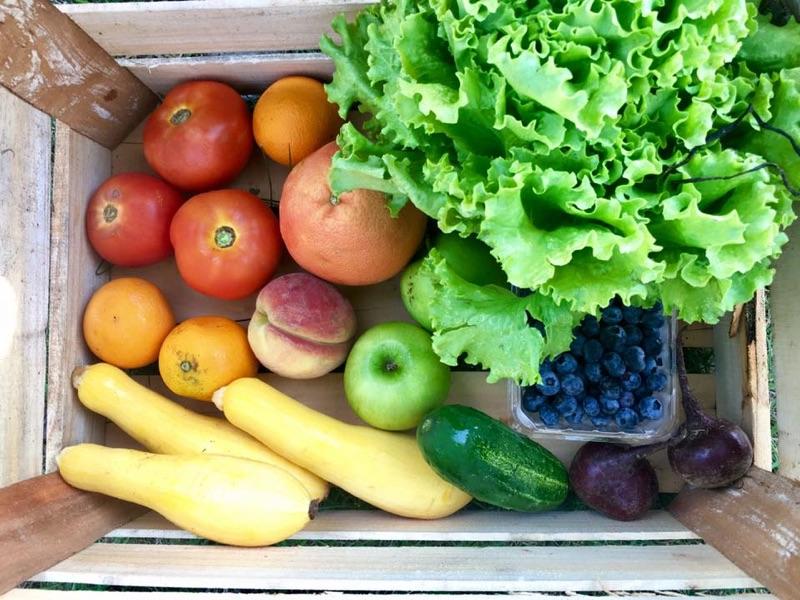The first time sophomore Thomas Gimeno planted corn in his backyard, he planted them too late in the season, and they were too far apart to pollinate effectively. He was only able to harvest five cobs from a total of 20 corn plants.
Gimeno said, “I’m not a professional farmer or anything. Those people obviously know what they’re doing, and they can grow corn, but a lot of the time (the corn cobs are) not shaped nicely.”
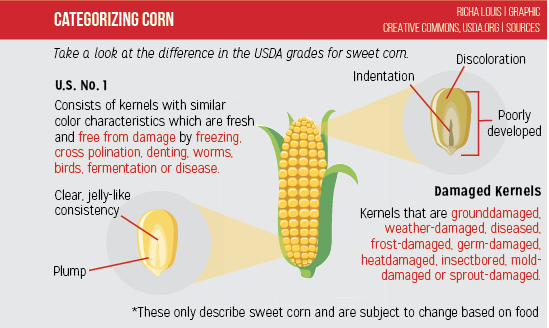
Gimeno said the corn he planted and was able to eat tasted fine, sweet even, but it wouldn’t have made it to stores.
As Earth Day approaches on Sunday, many farmers and gardeners like Gimeno begin to plant seeds for the upcoming growing season, not expecting every plant to create the perfect produce customers see in stores. Foods that don’t conform to a certain shape are often thrown away, according to Ungraded Produce, a company in Durham, N.C.
With 40 percent of food going uneaten in the United States, the company works to reduce food waste and its environmental impact. Ungraded Produce sells “ugly produce” at a discounted rate to prevent it from being thrown away. To combat the food waste, larger companies like Meijer are also creating their own programs to sell imperfect-looking produce at a discounted price.
With these new initiatives to combat food waste such as Ungraded Produce, Gimeno said, “When people start seeing (imperfect produce) in the produce sections in the grocery stores and even at their house, they’re going to be like, ‘Oh, this is fine,’ and I think it’s just going to snowball into effect where people don’t care anymore.”
He also said, “(People won’t) care if their oranges are a little green because oranges are picked green and dyed orange. If they pick them when they’re orange, they’d be rotten by the time they got to the store.”
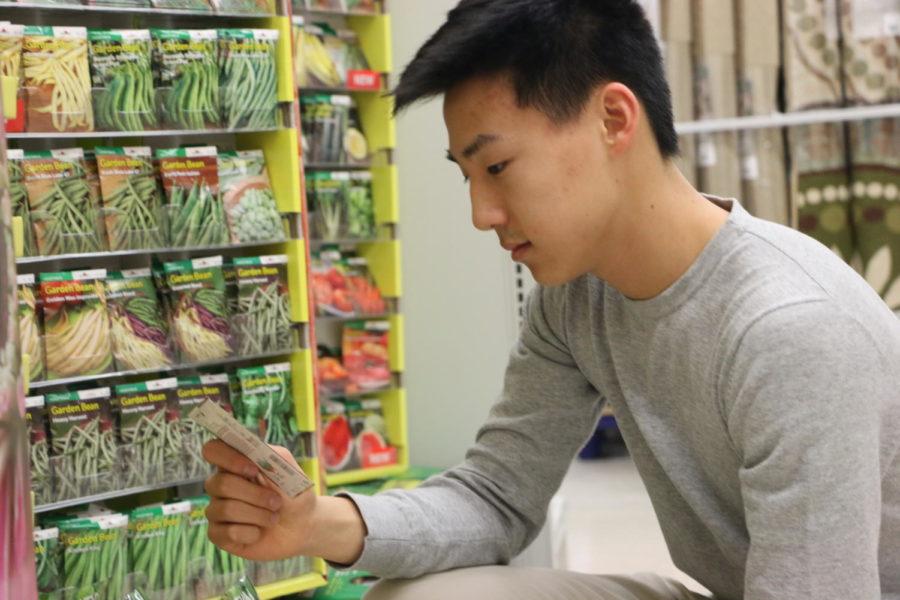
Sophomore Ethan Zhang chooses a seed packet to grow in his garden. Zhang said that people shouldn’t be selective when choosing food.
Courtney Bell, co-founder of Ungraded Produce, said, “(The business wants) to challenge the notion of what’s considered high quality edible produce by introducing ugly produce to people’s homes and showing that this is a perfect quality product.”
The National Resources Defense Council (NRDC) said 10 percent of the U.S. energy budget, 50 percent of U.S. land and 80 percent of consumed freshwater in the United States go to getting food to people’s tables. However, according to the NRDC, a large portion of this food, an equivalent of $165 billion every year, goes to waste.
The Guardian states that about 20 percent of produce is thrown away before it gets to the table because it does not conform to the industry standard of perfection.
Sophomore Ethan Zhang, who has had a garden since he was young, said, “It’s a good idea to sell misshapen food because there’s technically

nothing wrong with (it), but I just think it’s an unaccepted idea (that misshapen food is) bad food that we should get rid of. People should not be selective of the misshapen food. There shouldn’t be a discount for misshapen food.”
According to the NRDC, the process of culling, or the removal of products based on appearance or quality criteria is the primary reason for the waste of fresh produce.
Many consumers do not realize how strict these standards are. Bell said many of Ungraded Produce’s customers were her friends in the company’s early stages.
She also said, “They would ask (my co-founder and me), ‘How is this stuff even considered ugly?’ and we could explain why for one reason or another that the U.S. grading system would make this a grade two product. A lot of our friends then learned early on that even the most minor imperfection could cause something to be considered an inferior product.”
Bell said her business helped her not only pursue her passions but also help the environment.
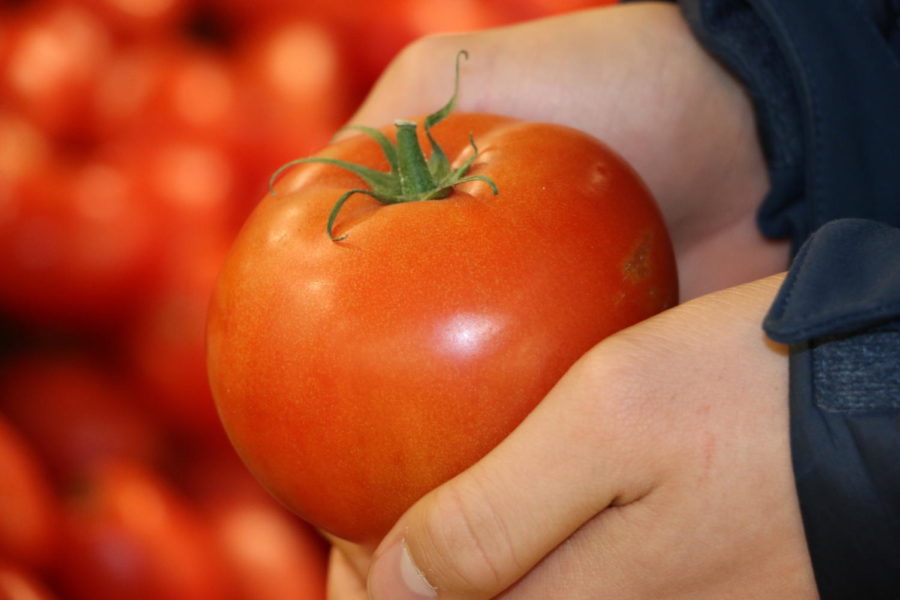
Zhang holds a tomato. Zhang said that people shouldn’t be selective when choosing food.
“We’ve been providing people with recovered produce, and so they’re reducing their environmental impact, and we’re also sourcing it locally, so that helps too,”
Bell said. “It’s very gratifying.”
Zhang and Gimeno said people should be less selective about the appearance of the foods they eat.
“Some people see ugly produce and they might think ‘Oh that’s a bad product’,” Bell said.
“(However, changing that mindset to) ‘Oh, it’s just misshapen’ serves as an early form of education for (those people), so they see that ugly is perfectly acceptable.”
All in all, Gimeno said, “It’s important to eat the ugly foods because a deformed orange is going to taste the same as a (non-deformed) orange. It’s just going to have a weird-looking peel.”




























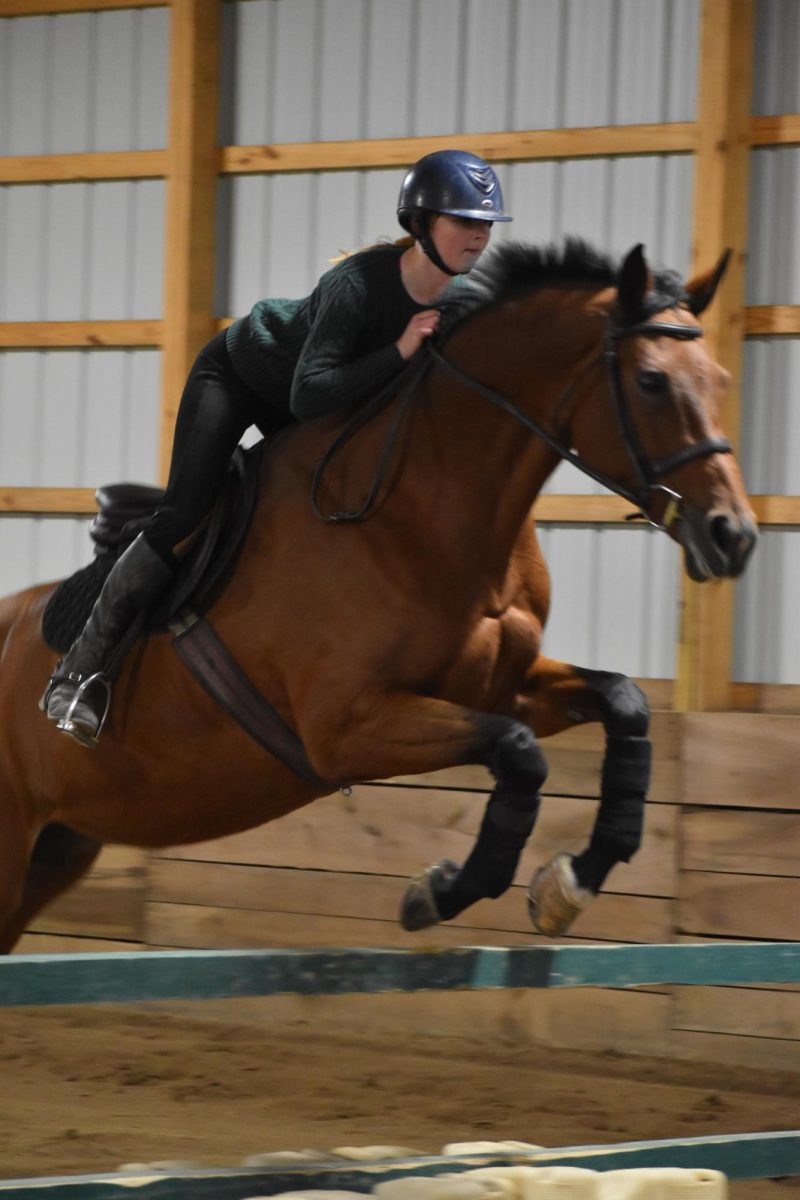





![British royalty are American celebrities [opinion]](https://hilite.org/wp-content/uploads/2024/03/Screenshot-2024-03-24-1.44.57-PM.png)



















![Chelsea Meng on her instagram-run bracelet shop [Biz Buzz]](https://hilite.org/wp-content/uploads/2024/04/IMG_2446-1200x838.jpg)
![Review: Quiet on Set: The Dark Side of Kids TV is the long awaited exposé of pedophilia within the children’s entertainment industry [MUSE]](https://hilite.org/wp-content/uploads/2024/04/unnamed.jpg)
![Review: “The Iron Claw” cannot get enough praise [MUSE]](https://hilite.org/wp-content/uploads/2024/04/unnamed.png)
![Review: “The Bear” sets an unbelievably high bar for future comedy shows [MUSE]](https://hilite.org/wp-content/uploads/2024/03/unnamed.png)
![Review: “Mysterious Lotus Casebook” is an amazing historical Chinese drama [MUSE]](https://hilite.org/wp-content/uploads/2024/03/0.webp)
![Review in Print: Maripaz Villar brings a delightfully unique style to the world of WEBTOON [MUSE]](https://hilite.org/wp-content/uploads/2023/12/maripazcover-1200x960.jpg)
![Review: “The Sword of Kaigen” is a masterpiece [MUSE]](https://hilite.org/wp-content/uploads/2023/11/Screenshot-2023-11-26-201051.png)
![Review: Gateron Oil Kings, great linear switches, okay price [MUSE]](https://hilite.org/wp-content/uploads/2023/11/Screenshot-2023-11-26-200553.png)
![Review: “A Haunting in Venice” is a significant improvement from other Agatha Christie adaptations [MUSE]](https://hilite.org/wp-content/uploads/2023/11/e7ee2938a6d422669771bce6d8088521.jpg)
![Review: A Thanksgiving story from elementary school, still just as interesting [MUSE]](https://hilite.org/wp-content/uploads/2023/11/Screenshot-2023-11-26-195514-987x1200.png)
![Review: When I Fly Towards You, cute, uplifting youth drama [MUSE]](https://hilite.org/wp-content/uploads/2023/09/When-I-Fly-Towards-You-Chinese-drama.png)
![Postcards from Muse: Hawaii Travel Diary [MUSE]](https://hilite.org/wp-content/uploads/2023/09/My-project-1-1200x1200.jpg)
![Review: Ladybug & Cat Noir: The Movie, departure from original show [MUSE]](https://hilite.org/wp-content/uploads/2023/09/Ladybug__Cat_Noir_-_The_Movie_poster.jpg)
![Review in Print: Hidden Love is the cute, uplifting drama everyone needs [MUSE]](https://hilite.org/wp-content/uploads/2023/09/hiddenlovecover-e1693597208225-1030x1200.png)
![Review in Print: Heartstopper is the heartwarming queer romance we all need [MUSE]](https://hilite.org/wp-content/uploads/2023/08/museheartstoppercover-1200x654.png)






















![Review: Ladybug & Cat Noir: The Movie, departure from original show [MUSE]](https://hilite.org/wp-content/uploads/2023/09/Ladybug__Cat_Noir_-_The_Movie_poster-221x300.jpg)

![Review: Next in Fashion season two survives changes, becomes a valuable pop culture artifact [MUSE]](https://hilite.org/wp-content/uploads/2023/03/Screen-Shot-2023-03-09-at-11.05.05-AM-300x214.png)
![Review: Is The Stormlight Archive worth it? [MUSE]](https://hilite.org/wp-content/uploads/2023/10/unnamed-1-184x300.png)


![Seniors Jillian Rang and Athul Ramkumar practice their presentation at the DECA state competition on March 5, 2024. Arya Patel, DECA paper head and junior, said, As they [students] begin to make their final preparations, its important to remember that making it to this point is an incredible achievement.](https://hilite.org/wp-content/uploads/2024/04/IMG_8285-1200x800.jpg)
